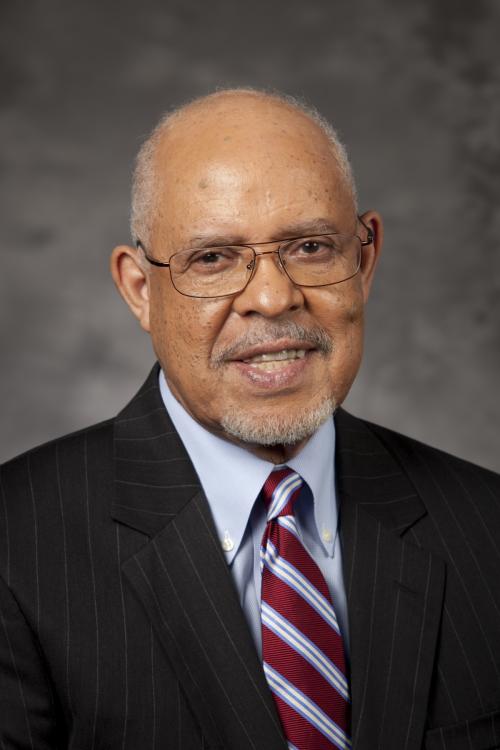
Remembering a Mentor, Ambassador James A. Joseph
Guest author and former NCRP employee, Christine Reeves Strigaro shares the impact Ambassador James A. Joseph had on her philanthropic career and life.
Has someone ever said a sentence that changed your life?
I mean an in-person moment in which a wise person looked at you, took the time to really see you, and deciphered within you something you could not see yourself? If you have such a person in your life, I’d posit that you are blessed with a mentor. I would fervently urge you to hold onto that mentor through the vicissitudes of life and be sure to keep in touch – even when you fear you have nothing yet to offer them in return.
I’m blessed to have been a mentee of the late Ambassador James A. Joseph. His life-shifting sentence to me was, “Christine, I know you want to do government work in DC, but you might be too creative to have 100 people on the same floor with your job title – you might enjoy philanthropy more.” Please note, government is admirable and critical work – and he himself was a U.S. Ambassador. He had said this partially in jest. Yet, as strange as it sounds, he was the first person I recall who actually elevated “enjoying” work, not just being successful at it.
Let me step back to 2008. I was a graduate student at Duke University’s Terry Sanford School of Public Policy, where I received a curt critique from my thesis advisory committee: “You focused too much on policy and advocacy, when you should have only focused on theory.” Crestfallen, I dwelled on that sentence for a few days before realizing it was another gift. It made me realize I was more suited to being a practitioner than an academic – to doing the work, not studying it.
That realization led to a master’s degree in public policy and some very valuable conversations with my favorite professor, Ambassador Joseph, who taught my favorite class. He introduced me to the craft of philanthropy, which I now understand is both an art and a science. He also introduced me to the concept of social justice philanthropy and quoted Dr. King: “Philanthropy is commendable, but it must not cause the philanthropist to overlook the circumstances of economic injustice which make philanthropy necessary.” (Later, Ambassador Joseph would develop the S.M.I.R.F. framework for utilizing all philanthropic capital – social, moral, intellectual, relationship, and financial.)
Ambassador Joseph explained how philanthropy had fewer dollars, but also fewer barriers than government. He emphasized how creatively leveraging philanthropic dollars can influence public dollars. He even shared the proof-of-concept example of 9-1-1, an experimental project initiated by the Robert Wood Johnson Foundation. I began seeing philanthropy as R&D (research and development) for the social sector, and not just as check-writers for the nonprofit sector. I asked about charity versus philanthropy, as well as about accountability for philanthropy – after all, foundations do not have electorates, customers, or shareholders. I even asked who defines philanthropic impact. At 22 years old, those meaningful conversations with Ambassador Joseph engaged my full imagination… and led me to my career. He gave me his time, which is perhaps the greatest gift anyone can give.
He welcomed creativity and outside-the-box thinking, especially when we studied projects by MDC (which he founded). At that time, I knew he was the Ambassador to South Africa during the end of Apartheid, but later I would come to realize his indelible mark on our field of philanthropy. For instance, about a year after graduating – and from third parties – I learned how he helped create, lead, or elevate such organizations as the Association of Black Foundation Executives, Council on Foundations, and National Committee for Responsive Philanthropy.
Only after I was hired at NCRP, with Ambassador Joseph serving as a reference, did I learn of his role in helping launch NCRP as the preeminent watchdog organization for philanthropy. So, I also have him to thank for providing incredible mentors during my five years at NCRP, including NCRP’s long-time President and CEO, Aaron Dorfman, former board members, Sherece Y. West-Scantlebury and the late Dave Beckwith, as well as former member, Cris Doby. As did Ambassador Joseph, they led by example and integrity, beginning from a place of trust and kindness and inspiring me daily with their passion and brilliance.
I wish I could thank Ambassador Joseph one more time, and I hope and pray his friends, family, and other mentees are comforted by wonderful memories of him. He was not only a great man. He was a truly good man.
Christine Reeves Strigaro is a non-resident fellow at the Urban Institute’s Center on Nonprofits and Philanthropy and a philanthropic consultant.
